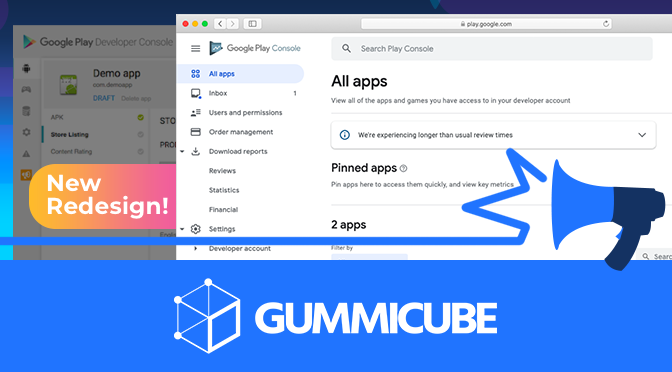
App Store Holiday Schedule 2020
Posted on November 23rd, 2020
When is the App Store Holiday Schedule 2020? Learn about the dates of this year's shutdown and how to prepare.

Google Play apps need to adhere to a list of guidelines if they want to be made available on the platform and remain there. Google has updated the guidelines recently to include an improved focus on security, especially around gathering user information.
Recently, several apps have been removed from the Google Play Store for failing to adhere to these guidelines. Removal can have long-lasting impacts on App Store Optimization, even after the app is restored, so developers should know what can get their apps removed and how to avoid it.
The Google Play Store’s guidelines for data collection put restrictions on what data apps can gather and why. According to the guidelines, apps must:
“Limit [their] access, collection, use, and sharing of personal or sensitive data acquired through the app to purposes directly related to providing and improving the features of the app (e.g., user anticipated functionality that is documented and promoted in the app's description in the Play Store). Apps that extend usage of this data for serving advertising must be in compliance with our Ads Policy.”
Recent reports state that Google has been enforcing that policy and has removed several apps from the Play Store. These apps, which were aimed at children, have allegedly accessed and leaked users’ Android ID and Android Advertising ID numbers. Together, the apps had over 20 million downloads, putting a significant number of users at risk.
When an app is in violation of Google Play guidelines, it can be removed from the Play Store. Even if the app addresses the violations and gets restored, the removal will have long-lasting impacts on its App Store Optimization.
When an app is removed, it loses its keyword indexation and rankings. When the app is restored, it will need to begin the indexation process anew and begin building its rankings from the ground up.
The time spent removed from the Play Store and the time needed to regain lost rankings will give the competition time to get ahead.
Any potential users that may have downloaded the removed app in that time will instead download competing apps, which can improve their own rankings in that time. Similarly, knowing what apps have been removed can signal to other developers that there’s a gap in the market their app can fill.
The potential losses an app faces from being removed last far longer than the removal itself.
App developers must be careful to follow all of the guidelines for the stores their apps are on. These can include the usage of certain SDKs, should they include any means of gathering user information. While this can be unintentional, it’s important to stay up to date to avoid the risk.
Guidelines like the restrictions on gathering data are designed with the intention of improving user security. Violations are taken seriously and can result in immediate removal. Developers should be aware of what their SDKs do in order to avoid unintentionally breaking these rules.
Developers need to ensure their apps are entirely compliant, even if the rule breaking aspects come from an SDK. Once they’re available on the Play Store, they can begin reaching users through a good App Store Optimization strategy.
Want to learn more about App Store Optimization? Contact Gummicube and we’ll help get your strategy started.

When is the App Store Holiday Schedule 2020? Learn about the dates of this year's shutdown and how to prepare.

Apple's App Store Guidelines have strict privacy requirements. Developers now must provide information to users on the App Store listing regarding the data they access.

The Google Play Developer Console has been updated with a new design and adjusted tools. What's different, and how will it impact App Store Optimization?